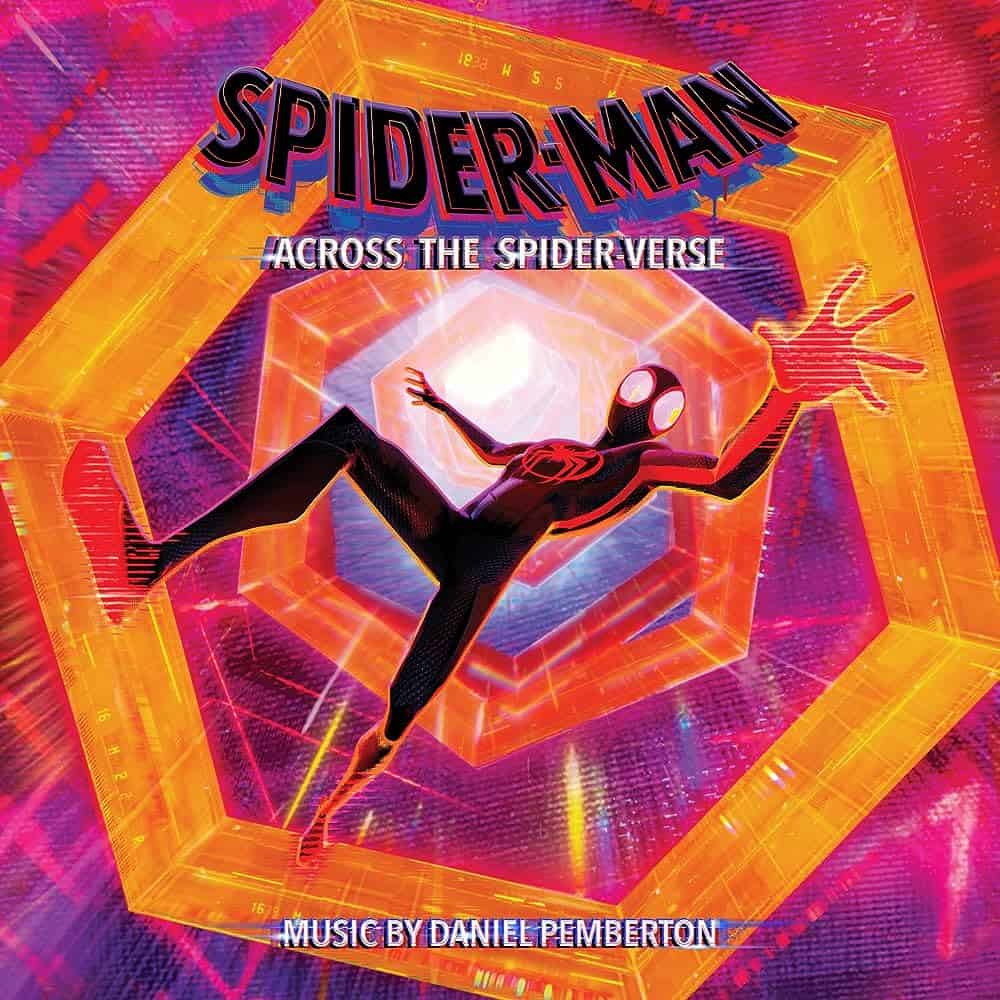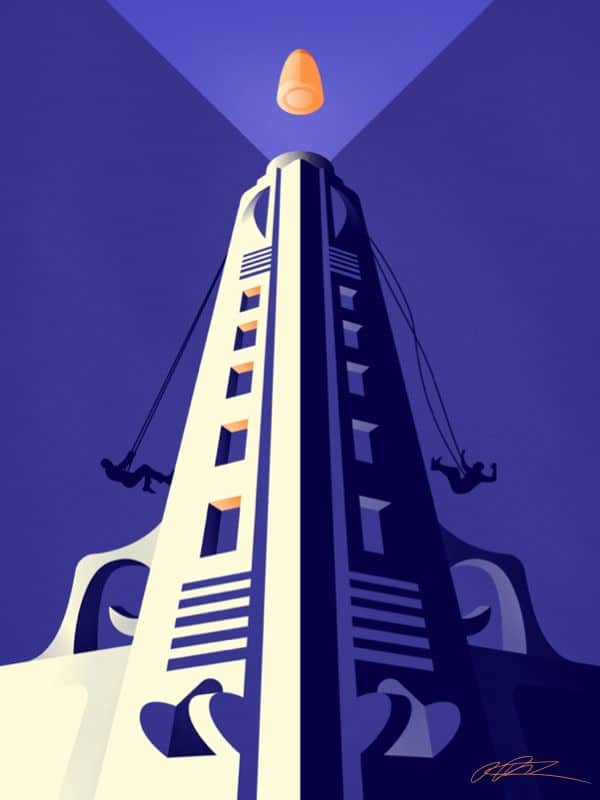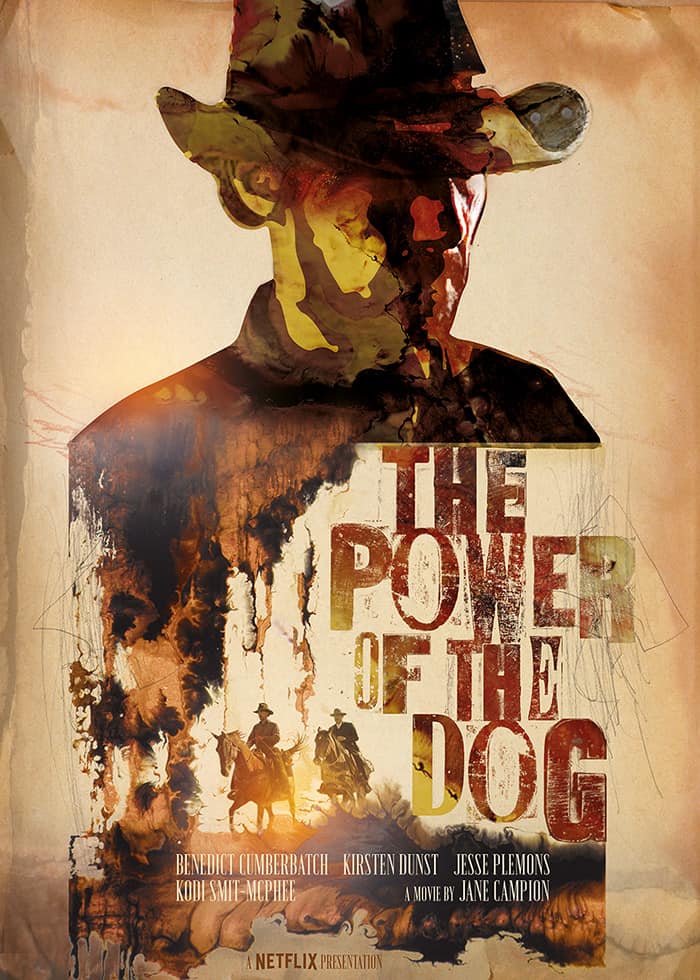
Most sequels to hit movies walk into the same traps while trying to outdo their predecessors: they stumble over the slew of new characters, settings, and problems that they introduce to turn a self-contained ending into the start of a trilogy, or worse, a saga. Spider-Man: Across the Spider-Verse had a multiverse of opportunities to trip over the sheer scope of its story, yet navigated every twist and turn as nimbly as its titular character, utterly sticking the landing. So too did the film’s composer Daniel Pemberton (Interview) who, unlike the movie itself, lost out on an Academy Award nomination.
It’s not the biggest snub committed by this year’s Oscars, but it’s still one worthy of discussion. Pemberton combined sound design, electronics, orchestra, punk rock, opera, whistling, and a literal goose in his musical score that somehow feels like a cohesive expression of a million ideas at once. Pemberton even reexamined what it means for a character to have a theme; his Prowler theme in the franchise’s first film, Spider-Man: Into the Spider-Verse, is essentially just a noise. Still, it’s just as effective as John Williams’ iconic “The Imperial March (Darth Vader’s Theme)” at letting you know something deadly powerful is on the way.
Pemberton’s score is a masterclass in postmodern film score construction and a true expression of modern music tastes. “Genre is dead” is a popular cry among artists and music listeners alike, but few scores exemplify this in the way that the Spider-Man: Across the Spider-Verse score does (Son Lux’s music for Everything Everywhere All at Once could be another serviceable example). Even more impressively, for all of the score’s experimentation and chaos, it’s also beautiful and, importantly, accessible, with Pemberton’s “Spider-Man 2099 (Miguel O’Hara)” theme racking up over 20 million Spotify streams alone. Why in the world, then, wasn’t he nominated for the Academy Award for Best Original Score?
There are a number of factors that could have hurt Spider-Man: Across the Spider-Verse in this category. One could be that animated movies don’t generally perform well in the category. Over the last decade, only three animated films have been nominated for Best Original Score, and the only film that won—Pixar’s Soul—boasted a (fantastic) score by well-known heavy-hitters Trent Reznor, Atticus Ross (both also Academy favorites), and Jon Batiste. Another could be the score’s similarity to Pemberton’s work on the first film, though both Spider-Man movies were nominated in the Best Animated Feature category. Most likely, though, it’s a combination of competition and context.
The list of 2023 Best Original Score nominees has at least two slots devoted to once-in-a-lifetime projects. Rumors swirled that Indiana Jones and the Dial of Destiny was to be John Williams’ final score; how could the most influential film composer of all time not be nominated for his last work? Meanwhile, Robbie Robertson earned a posthumous nomination for Killers of the Flower Moon. It is a unique score that allowed Robertson to touch on his own Native American heritage, but it’s also the first time the Academy has recognized a Robertson score despite his decades of collaboration with Martin Scorsese.
Those, and the other scores, do of course deserve their credit and their nominations. Laura Karpman’s (Interview) music for American Fiction wrestles jazz into the shape of underscore, flitting from background to foreground and back again. Ludwig Göransson managed to toe the line between the grandiose and the introspective for Oppenheimer. And Jerskin Fendrix (Interview) used his first-ever film-scoring gig to create a soundscape that, even without the story and visuals of Poor Things behind it, sounds like the messy process of evolution itself. Still, Pemberton’s score is groundbreaking, epic, thematic, and memorable, and it’s a true shame that he has gone as yet unrecognized for the Herculean task he has accomplished.
There is an argument to be made that Pemberton’s score is more innovative than Williams’ or Robertson’s, more accessible than Fendrix’s or Karpman’s, or more ambitious than Göransson’s, but it doesn’t feel right to say any of those evocative scores shouldn’t have garnered a nomination. What’s truly to blame may simply be the fact that the number of Best Original Score nominees is capped at five. The good news? Spider-Man: Beyond the Spider-Verse is on the way and, as the saying goes, the third time is the charm.
About the Author: Owen Danoff is a Los Angeles-based writer whose own musical and creative background informs his desire to highlight modern industry topics and shapers. Twitter: @owendanoff
Editor’s Note: Want more Oscars coverage? Listen below:




1 thought on “Spider-Man: Across the Spider-Verse Was Robbed of a Score Nomination, But by Whom?”
Comments are closed.